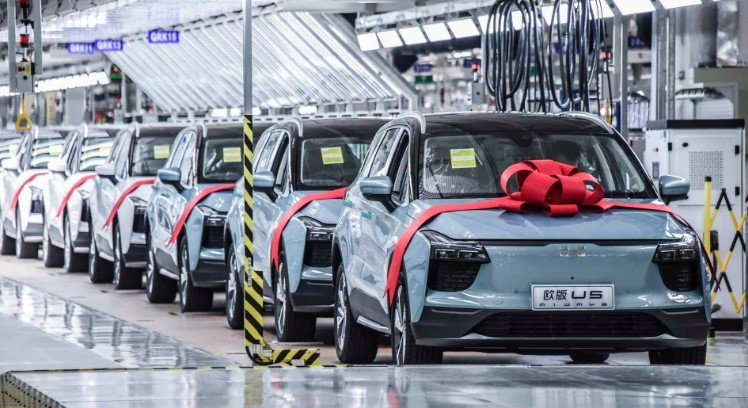Chinese electric vehicles spark debate over protection of VN's auto industry
Society – Economy - Ngày đăng : 09:47, 04/09/2024

Similarly, in May 2024, the United States increased the import tariff on Chinese electric cars from 25% to 100%. The European Union (EU) has also imposed tariffs of up to 38% on Chinese electric vehicles.
According to the U.S.-based Center for Strategic and International Studies (CSIS), China has invested US$230.8 billion over the past decade to develop its electric vehicle industry.
From 2009 to 2023, government support in China accounted for 18.8% of the total electric vehicle sales volume. This substantial governmental backing has led to strong growth and current overcapacity in China’s electric vehicle sector.
China has 123 automotive manufacturers with a combined production capacity of about 40 million vehicles per year, including hundreds of electric models. However, domestic consumption accounts for only about 22 million of these vehicles.
With supply far exceeding domestic demand, Chinese automakers are increasingly looking to expand into global markets. Last year, China exported 4.91 million cars worldwide, a significant portion of which were electric vehicles.
Brands like BYD, Geely, Chery, Great Wall, SAIC, and Wuling are already making inroads into Vietnam, bringing electric vehicles to the market. With a population of over 100 million, many of whom are young and quick to adopt new technology, Vietnam represents a significant and promising market for these vehicles.
The Ministry of Industry and Trade forecasts that the Vietnamese car market could reach 1 million vehicles by 2030 and between 1.5 and 1.8 million vehicles after 2035. Moreover, the Vietnamese government has set ambitious goals to reduce greenhouse gas emissions and promote the transition to clean energy.
By 2040, the country plans to gradually restrict, and eventually cease, the production, assembly, and import of fossil fuel vehicles. By 2050, all vehicles in Vietnam are expected to run on electricity or green energy.
This policy direction promises a bright future for electric vehicles and explains why Chinese car manufacturers are increasingly targeting the Vietnamese market with ambitious plans.
Concerns over inexpensive chinese electric vehicles
Dealerships for Chinese car brands are set to proliferate across Vietnam. For instance, BYD plans to open 15 retail dealerships this year and aims to have about 100 dealerships nationwide.
In a report to the Standing Committee of the National Assembly, the Government, and various ministries and local authorities, the Vietnam Automobile Manufacturers Association (VAMA) expressed concern that domestic car manufacturers may face significant competition from inexpensive foreign electric cars.
VAMA highlighted that Chinese brands could produce electric vehicles priced between VND250 million to VND270 million. The entry of these foreign electric vehicle brands could pressure and significantly impact the business operations of domestic manufacturers and assemblers.
While current Chinese electric vehicle models sold in Vietnam are priced relatively high, the pattern in other markets suggests that these vehicles often launch at high prices and then undergo significant reductions.
BYD’s pricing strategy in Thailand exemplifies this, where rapid price cuts shocked many customers. For example, the BYD Atto 3 Extended Range, initially priced at 1,199,000 baht (nearly US$40,000) at the end of 2023, was reduced to 859,900 baht (nearly US$30,000) by July 2024, prompting the Thai government to investigate potential dumping practices.
Many believe that, due to substantial state subsidies and overproduction in China, Chinese electric vehicles can afford to adopt aggressive pricing strategies.
Economic experts suggest that Vietnam needs to implement protective policies for its domestic automobile manufacturing sector.
Associate Professor Nguyen Thuong Lang from the National Economics University recommends that Vietnam act swiftly to protect domestic production and establish clear regulations for imported electric vehicles. Import tariffs could be applied to inexpensive electric vehicles that threaten domestic production.
Even if sales volumes are low, if there is evidence that government subsidies are harming domestic production, legal action should be taken to impose tariffs. Additionally, if imported electric vehicles are sold cheaply without any commitment to developing charging stations or energy infrastructure, they could be refused entry.
